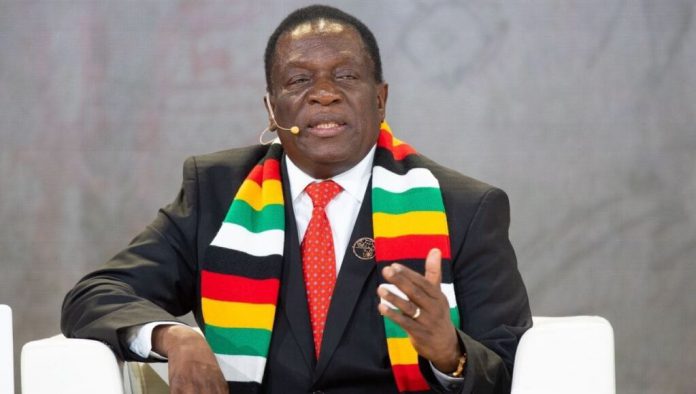President Mnangagwa emphasized the significant headway being made by Zimbabwe in its mission to clear debts and arrears, noting the growing trust and goodwill among partners as negative perceptions and mistrust are eliminated.
The President addressed attendees at the 4th High-Level Debt Resolution Forum held in Harare, stating that the event serves as part of Zimbabwe’s Arrears Clearance and Debt Resolution process initiated by the Second Republic.
The country has long struggled with a heavy burden of debt, hindering socio-economic development.
Despite economic sanctions and the weight of debt, Zimbabwe continues to forge ahead by self-financing its projects and engaging with multinational financial institutions and debtor nations.
President Mnangagwa has enlisted the assistance of former Mozambican President Joachim Chissano and Dr Akinwumi Adesina, President of the African Development Bank Group (AfDB), as debt clearance champions.
President Mnangagwa highlighted the quarterly token payments made by his government to Multilateral Development Banks, affirming the need to foster trust and goodwill among all parties involved. He praised the progress achieved so far, acknowledging the consensus and confidence in the debt clearance process.
The President also outlined the detrimental impact of the debt burden on sectors such as healthcare, education, and social protection, affecting vulnerable members of society, including the elderly and children. Furthermore, Zimbabwe’s ability to pursue inclusive economic development, infrastructure investments, and climate change mitigation has been hindered.
Notably, the country faced the challenge of combating the Covid-19 pandemic without external support.
To attain economic stability and reach an upper-middle-class status, President Mnangagwa detailed measures undertaken by his administration through the National Development Strategy 1 (NDS1).
These measures encompass fiscal consolidation, fiscal transparency enhancement, the removal of fuel, electricity, and agricultural subsidies, and more efficient procurement processes.
A sound Monetary Policy regime is also in place to control money supply growth.
President Mnangagwa stressed the accelerated implementation of the Arrears Clearance, Debt Relief, and Restructuring Strategy, along with transparency and accountability through regular reporting and the publication of public debt statistics.
He highlighted the reforms in public enterprises, constitutional consolidation, and notable GDP growth.
The President expressed satisfaction with the progress made in the three pillars of economic reforms, governance reforms, land tenure reforms, compensation of former farm owners, and the resolution of Bilateral Investment Protection and Promotion Agreements (BIPPAs).
The Forum, attended by representatives from Western countries and multilateral institutions, was graced by the presence of Vice President Constantino Chiwenga, Minister of Information, Publicity and Broadcasting Services Senator Monica Mutsvangwa, and other senior government officials.
In his address, Dr. Akinwumi Adesina emphasized the importance of supporting Zimbabwe due to President Mnangagwa’s commitment to reform.
He expressed optimism about the future of Zimbabwe’s youth, emphasizing the role of the international community in arrears and debt resolution.
Dr. Adesina commended President Mnangagwa’s determination to resolve long-standing issues that led to the imposition of sanctions, considering it the right course of action after decades of compromising Zimbabwe.
Echoing this sentiment, President Joachim Chissano praised Zimbabwe’s commitment to reform and engagement, urging the world to take advantage of President Mnangagwa’s open-door policy.
He commended the Zimbabwean government for initiating dialogues with relevant partners. Notably, the debt clearance champions recently visited the United States, lobbying for the removal of unilateral economic sanctions, with promising results.










